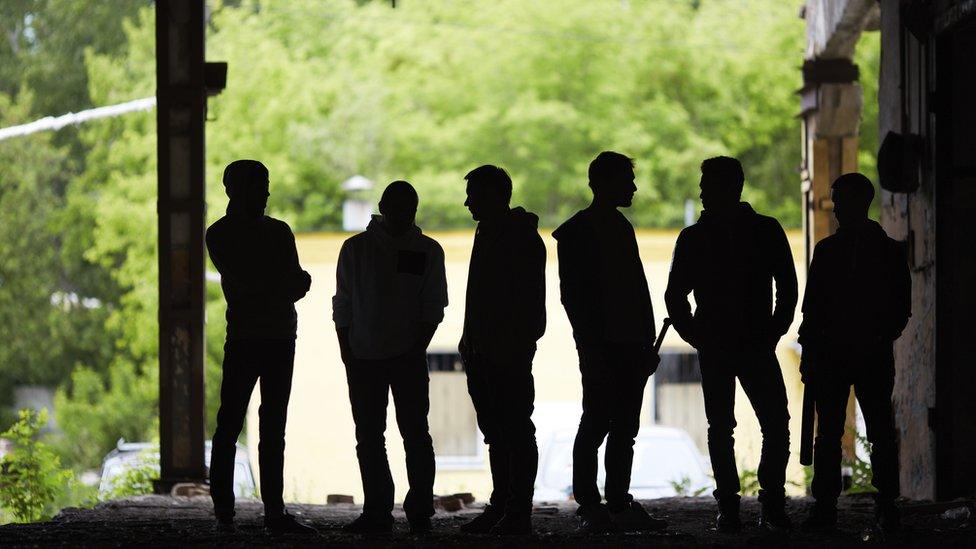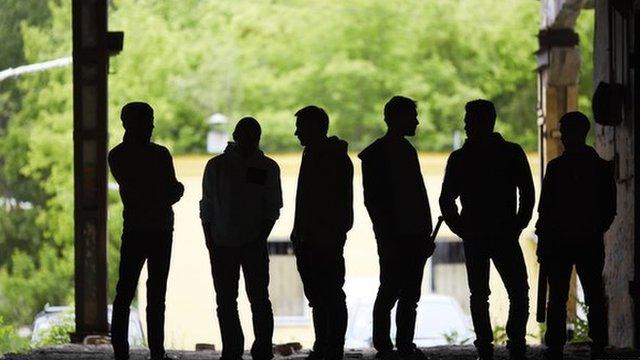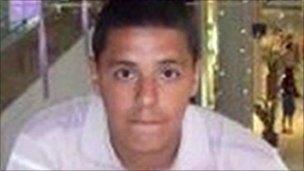Judges to hear 'joint enterprise' murder appeals
- Published

A joint session of the Supreme Court and Privy Council is to hear appeals in two cases where convictions were gained under the doctrine of joint enterprise.
Joint enterprise has become an effective way to prosecute murder, especially in cases involving gangs.
But it is controversial because in such cases, there is no need to prove a member of the group intended to kill.
Campaigners say up to 600 people are serving life for murder as a result of unjust joint enterprise convictions.
To be guilty of murder, the prosecution need only show that someone foresaw the person they were with "might" kill or inflict serious harm, said BBC legal affairs correspondent Clive Coleman.
He said the "unprecedented" hearing will "scrutinise the contentious 'foresight' test at the heart of joint enterprise, and could change it".
'All in it together'
Our correspondent said: "The test at the heart of joint enterprise is one of foresight and possibility, and many believe that lowers the burden on the prosecution and allows those who are simply too morally remote from the crime, bit-part players or not even players at all, to be swept up in a prosecution and convicted on the basis that they were all 'in it together'.
"If the test is passed and a person is convicted of murder, they will receive the mandatory life sentence."
Concern about the use of joint enterprise has also been raised in the past by former President of the Supreme Court Lord Phillips, who said it is "capable of producing injustice, undoubtedly".
In December 2014, the House of Commons Justice Committee, external called for an urgent review into its use to prevent overcharging. Its report noted that a large proportion of those convicted were young black and mixed race men.
The Supreme Court case, external involves defendant Ameen Jogee, who was found guilty of murder and sentenced to life imprisonment with a minimum 20-year term at Leicester Crown Court in 2012.
Paul Fyfe, 47, a former Leicestershire police officer, died from a single stab wound at his girlfriend's flat.
The court has to prove that Jogee, in "egging" on Mohammed Hirsi to harm Mr Fyfe, foresaw that it was "probable" rather than "possible" that his friend would then use a weapon to murder the man.
Hirsi, from Spinney Hill, was ordered to serve a minimum of 22 years for stabbing Mr Fyfe.
The Judicial Committee of the Privy Council, which hears final appeals from many current and former Commonwealth countries as well as UK overseas territories, is considering a case involving the murder of a taxi driver in Jamaica, external.
The judgments in both cases will be reserved and are expected to be published in the new year.
- Published18 February 2016

- Published17 December 2014

- Published24 April 2013
